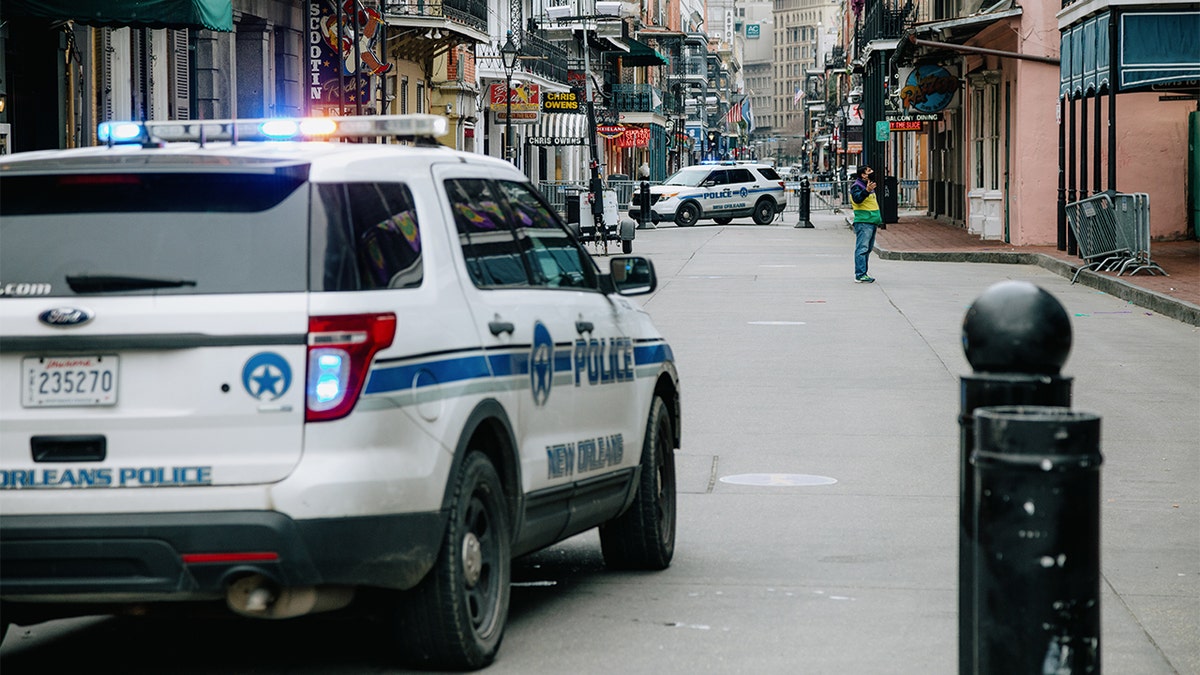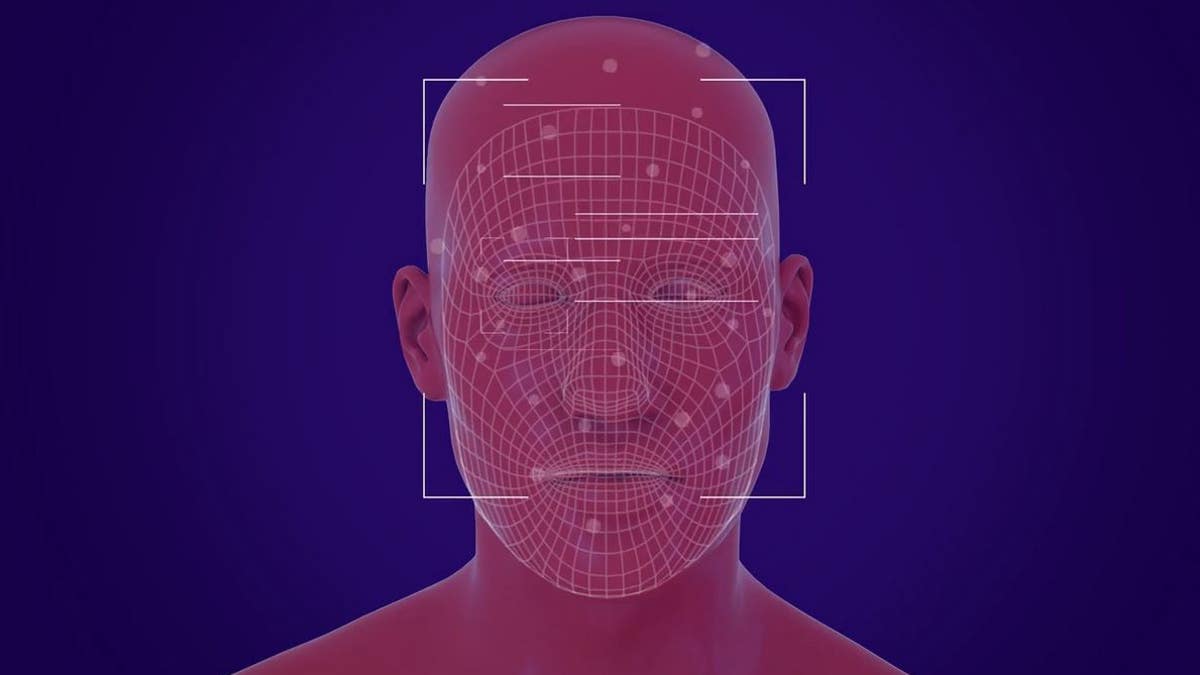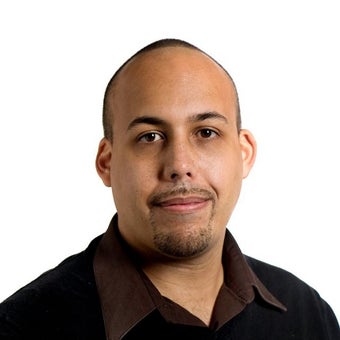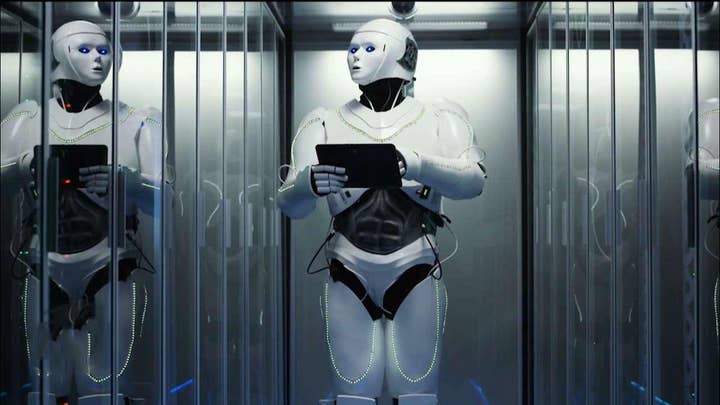Airport facial recognition comes under scrutiny
Lucas Tomlinson reports on bipartisan push for transparency
As violent crime continues to plague New Orleans, investigators have been given another tool to help solve cases following a reversal over the summer of a ban on facial recognition software despite privacy, civil rights and accuracy concerns from detractors.
The New Orleans Police Department began training officers on the software over the summer, but its use will be limited in scope to prevent potential abuses, New Orleans Police Sgt. David Barnes told Fox News Digital.
He noted that the technology is not used to prevent crime or for purposes of probable cause but, instead, to aid in investigations of crimes that have already occurred.
"We cannot make an arrest or get a search warrant or anything based on a facial recognition match," Barnes said. "The only thing it does is provide us a possible ID of someone so that we can continue the investigation to see if they are even a viable suspect."
NEW ORLEANS SHOOTING ON BOURBON STREET LEAVES 5 PEOPLE WOUNDED, POLICE SAY
In July, the City Council voted 4-2 to allow the police department to request access to the technology and other surveillance tools to investigate violent crimes as killings reached numbers not seen since after Hurricane Katrina in 2005. An outright ban on the technology was enacted in 2020 to prohibit its use by authorities at a time when the city was experiencing low levels of violent crime.
New Orleans Mayor LaToya Cantrell argued that rolling back earlier restrictions would help investigators arrest more criminals.
ACTIVISTS DEMAND FACIAL RECOGNITION BAN FOR LAW ENFORCEMENT IN MAJOR NEW PUSH
"Passage of this ordinance by the City Council now paves the way to increase the NOPD’s ability to protect and serve the residents, businesses and visitors to the City of New Orleans," she said in a statement at the time. "This is a win for everybody."
Before that, the police department did not widely use facial recognition, Barnes said.
During the meeting when the ban was lifted, council members J.P. Morrell and Lesli Harris opposed the move, saying the utilization of facial recognition technology would do little to improve public safety.
Fox News Digital has reached out multiple times to several council members, including Eugene Green, who proposed the reversal, but did not hear back.

Police vehicles block access to Bourbon Street in New Orleans Feb. 16, 2021. (Bryan Tarnowski/Bloomberg via Getty Images)
NOPD limits on facial recognition
To use facial recognition, officers are required to submit a written request that must be approved by a supervisor and vetted by the department's Central Intelligence Center. The image being used would then be sent to the Louisiana State Analytic and Fusion Exchange in Baton Rouge where it would be compared to a criminal database.
A match on its own does not establish probable cause for an arrest.
The NOPD is also required to keep track of how often facial recognition software is used and whether it has facilitated any investigations or led to any arrests, Barnes said, adding that several layers of review have been created in an effort to prevent misidentification.
The department does not license the software but rather will request its use from the State Analytic and Fusion Exchange.
One major stipulation requires investigators to exhaust all other methods of identification before using facial recognition as a last resort.
Like New Orleans, some municipalities have reversed bans on facial recognition technology. In Virginia, lawmakers in June lifted a ban enacted only a year earlier to allow police agencies to use the technology in certain situations, including to identify someone believed to have committed a crime or victims of crime like sex trafficking and unidentified bodies in morgues.
The technology cannot be used for surveillance or monitoring purposes.
For supporters, facial recognition is seen as another tool to help solve crimes if used properly.
"This is all about adding a tool to the toolbox and using it in a rightful, meaningful, constitutional way to give our detectives the support that is needed to further their investigation," NOPD Superintendent Shaun Ferguson said during the July council meeting.

Fight for the Future is calling for a total ban on facial recognition technology at the federal level. (Fight for the Future)
Violent crime has been a major concern in 2022 as the number of murders across New Orleans has outpaced previous years.
As of Monday, the city has experienced 239 homicides, surpassing the number of killings for all of 2021, when 218 slayings occurred, according to police data. In 2020, the city reported 201 killings.
In September, Cantrell balked at the city being called the murder capital of the country.
"I don’t embrace it at all," she said after a press conference.
Facial recognition essentially reads the features of one's face such as cheekbones, the forehead and chin.
Critics contend the technology is subject to operational biases that sometimes go unchecked, leading to misidentifications based on race. Those concerns have been heightened in New Orleans, where the majority of residents are Black.
"Facial recognition has been proven to misidentify Black faces at higher rates than White ones," Eye on Surveillance, a coalition of local community groups opposed to the expansion of the facial recognition software, told Fox News Digital. "Black people are overrepresented in mugshot data, which facial recognition tech uses to make predictions."
The presence of Black people in such systems "creates a feed-forward loop whereby racist policing strategies lead to disproportionate arrests of Black people, who are then subject to future surveillance" and that "there are serious Fourth Amendment concerns with the use of facial recognition and other invasive surveillance tools that could allow the police to surveil protestors, witnesses of a crime or abortion seekers without a warrant."
The group noted that people don't give consent to being watched while outside, referring to the city's Real Time Crime Center, a network of more than 500 surveillance cameras across the city.
Still, facial recognition has been touted by authorities and supporters as the newest tool in an effort to catch criminals. However, opposition to its use still worries many privacy and civil rights advocates.
In 2020, a class-action lawsuit was brought against Clearview AI, a facial recognition software that owners claimed could identify someone from a single photo. The software was designed specifically to help law enforcement agencies solve crimes.
The founder of the company, Hoan Ton-That, touted the software as a "search engine for faces."
Two people in Illinois claimed the software illegally took photos from their social media profiles and stored their biometrics in a database. A settlement reached in May restricts Clearview from selling the faceprint databases and prohibits the company from making it available to most businesses or other private entities.
Privacy advocates have said local governments would benefit more from targeting the root causes of crime rather than performative measures.
Chris Kaiser, the advocacy director of the American Civil Liberties Union of Louisiana, said the expansion of facial recognition isn't ready to be rolled out and noted that some New Orleans city leaders possibly acted too quickly to bring back the technology amid a surge in crime.
"People in this city are rightly concerned about violence, but the fact is we want to get it right and use tools that will actually help bring a resolution to that, but this just isn't one of them," he told Fox News Digital.
In an effort to prevent any abuse or mistaken matches, the department has developed certain criteria in which facial recognition can be used. That includes the type of crimes being investigated – it must be a violent felony.
"It can't be the first step you go to. There have been news stories of misuse where they had photographs of somebody they said looked like the subject, so they run them through facial recognition," Barnes said. "In my opinion, that's just absolutely, 100%, bad police work and is a misuse of the software."
Authorities are also banned from using the technology in real-time surveillance, including through the Real Time Crime Center.
CLICK HERE TO GET THE FOX NEWS APP
Law enforcement gets the most value from the technology in cases where investigators have only an image to go on, said Jake Parker, director of government relations for the Maryland-based Security Industry Association
"What this does is it automates the process where you can look at existing records that are available … and say, ‘Is this anyone that is a close match that we should look at further?'" he told Fox News Digital. "I don't know of any police department in the country that's using this as a surveillance tool."







